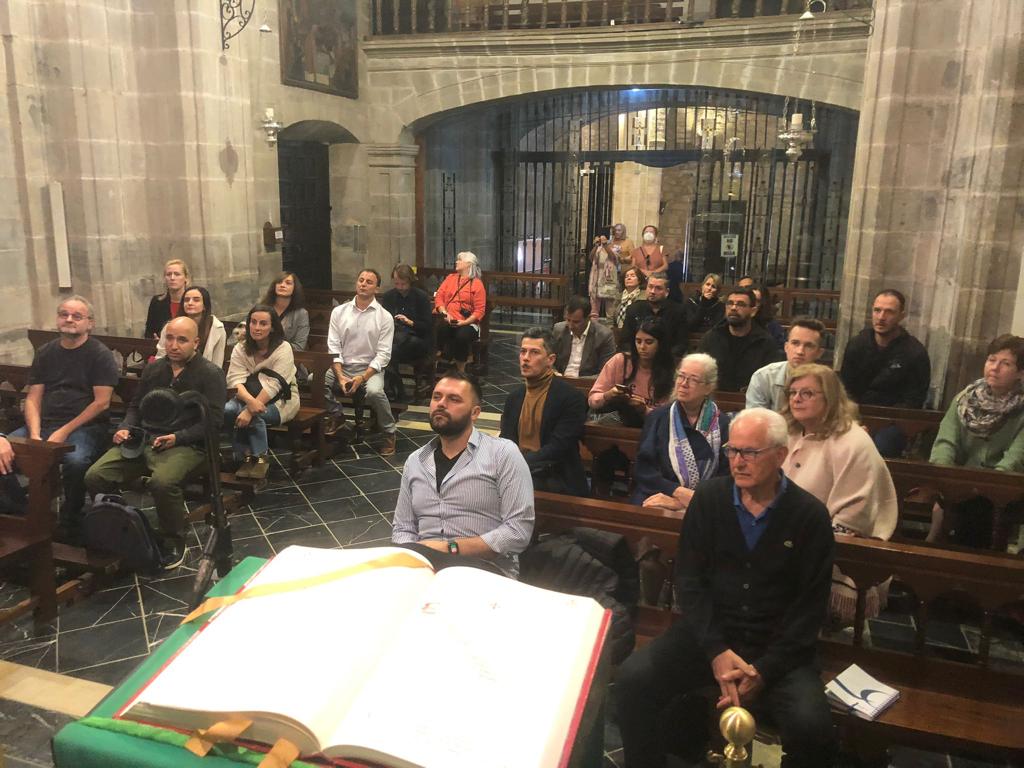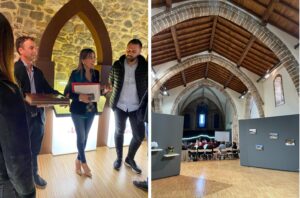
The Lebaniego Centre of Studies (FRH member) hosted in September a peer learning visit of the “Cultural Heritage in Action” programme to exchange knowledge and best practices among cultural heritage professionals at the European level. The visit took place at the Lebaniego Centre for Studies in Potes, Spain, and gathered cultural heritage experts, EU policymakers, and local administrators of cultural policies.
The meeting was attended by the FRH President, Pilar Bahamonde, the Advisory Board President, Lilian Grootswagers, and Council Member, Sarah de Lencquesaing.
In the inaugural session Pilar Bahamonde, introduced participants to the transformation of the old church of San Vicente Martir into the Lebaniego Centre of Studies, and Karin Drda-Duhn, director of LEARN-IP project, presented this initiative to train cultural and tourism professionals in the management of Intellectual Property Rights and Geographical Indication in these fields.
Best practices and study visits
The main objective of the meeting was to exchange best practices and highlight examples of re-use of religious buildings. The group learned about the project “From Domus Dei to Domus Populi“, the local initiative that made it possible for the Lebaniego Centre of Studies to refurbish the old church of San Vicente Martir and transform it into a cultural and exhibition centre with more than a thousand years of history.
The last day of the meeting was reserved for study visits. These included the Monastery of Santo Toribio de Liébana, a traditional cheese factory and a local distillery. Participants were welcomed at the monastery by the monk of the Franciscan Order, Oscar Solloa and the President of the Santísima Cruz Confraternity. They discussed with the participants the sustainability of such religious sites, especially threatened by the decreasing number of religious congregations.






Follow us: